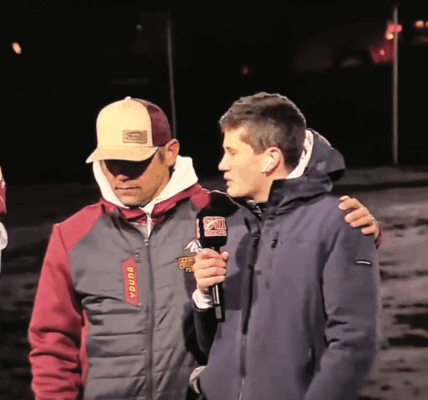‘State aid hasn’t kept up’: Community College Commission requests $16 million in state aid

By Hannah Shields
Wyoming Tribune Eagle
Via- Wyoming News Exchange
CHEYENNE — Community colleges are burdened with the high costs of inflation, and the Wyoming Community College Commission is trying once again to get the state to pay its share.
Funding for community colleges is split three ways: 60% funded by the state, 20% funded through local revenue, and 20% funded through student fees and tuition. The commission is statutorily required to keep community college tuition as “close to free as possible,” said Deputy Director Ben Moritz, who is soon to become its executive director.
Chief Financial Officer Michael Swank told lawmakers during the Legislature’s Joint Appropriation Committee budget hearing on Friday that the state hasn’t kept up with its portion of funding.
“Right now, where the state aid budget is at, we’re roughly at between 50 and 53% (in state aid),” he said. “The state aid position hasn’t kept up with that particular traditional split of resources to the colleges.”
During the 2022 budget session, the Wyoming Community College Commission requested $21.2 million in state aid through an exemption request, which officials said was the needed amount to compensate for increased costs of inflation. The Legislature, however, only awarded the commission $7.5 million.
This year, the commission came back with a $16 million exemption request. Swank told lawmakers the request included the remaining $13.7 million that was not previously allocated, plus a little over $2 million to adjust for “higher than average inflation rates” for cost of living.
“In the grand scheme of things, I would say ($16 million) is a middle ground request,” Moritz told the WTE.
The inflation exemption request, Moritz said, accounted for the drop in the commission’s purchasing power from 2019 to 2022. There are fixed costs that still need to be paid for by the commission, despite a steady decrease in student enrollment over the past decade.
Swank told the WTE the inflation exemption for state aid in the budget request did not directly tie with the commission’s statutory commitment to keep tuition as close to free as possible.
“But it would be reasonable for the commission to consider that level of state funding when they decide on tuition,” he said. “They take that to heart.”
Higher property taxes, less state aid
Because many community colleges have received higher property taxes, Gov. Mark Gordon recommended cutting the state aid exemption request to approximately $4 million, only a quarter of the amount asked for by the commission.
However, Swank argued the sudden rise in property taxes wasn’t stable enough to fund ongoing costs for community colleges. Volatile property taxes were acceptable for one-time costs, he said, but the “ups and downs” of property taxes didn’t provide a stable source of local revenue.
“I can’t speak for the colleges, but I do understand those colleges are concerned with the ups and downs,” Swank told lawmakers.
Goshen County, where Eastern Wyoming Community College is located, is the smallest and most stable county in terms of property tax revenue, Swank said. Other counties, such as Sweetwater, have more unpredictable property tax income.
“Even with the most recent increases, they are now roughly at the highs they were at in the 2006 to 2009 range,” Swank said.
In the governor’s budget note for the community colleges, Gordon recommended the money only be distributed to districts that did not see an increase in revenues. Rep. Clark Stith, R-Rock Springs, asked, should the governor’s recommendation be approved, how that money would be allocated.
“That just puzzles me how you would implement it,” Stith said. “Because, although you never touched local revenues, you nonetheless, through your funding allocation model, reduce the amount of aid you gift to a community college if it has higher property taxes.”
Western Wyoming Community College, he said, would probably receive less money, since Sweetwater County currently has higher property tax revenues.
“If you only gave the inflation adjustment to those districts that had lower increases of assessed valuation, it would punish Western Wyoming Community College,” Stith said.
Swank agreed with Stith’s interpretation of the governor’s instruction, saying Gordon’s note is “slightly awkward.”
The funding allocation model, which is how the commission is statutorily required to send money, already takes the fluctuation of taxes into account. Swank said, through this model, Western Wyoming Community College received less money this year because of Sweetwater County’s higher-than-average property tax revenue.
Eastern Wyoming Community College currently receives the most state aid, he added, because the assessed valuation is significantly less in proportion to the size of its campus.
What’s next?
The Joint Appropriations Committee will continue to hold budget hearings at the Wyoming State Capitol through next week, where more state agencies will present their budget requests. The budget hearings are held in preparation of the Legislature’s 2024 budget session, which begins Feb. 12.



